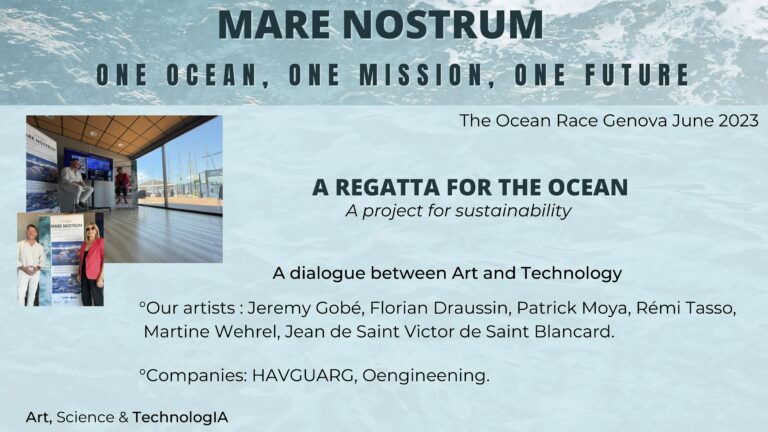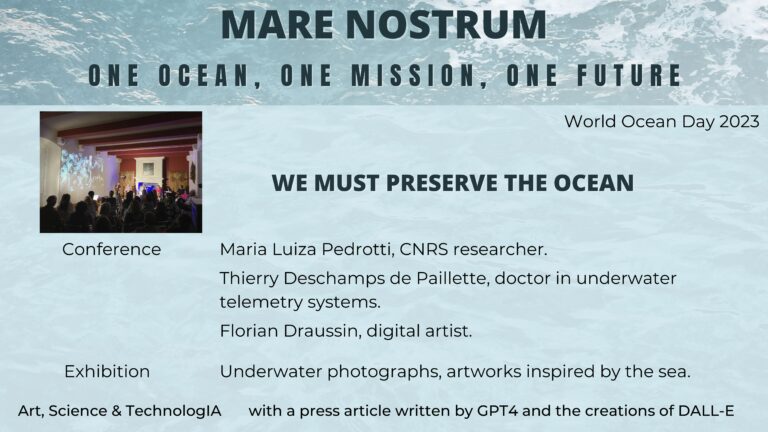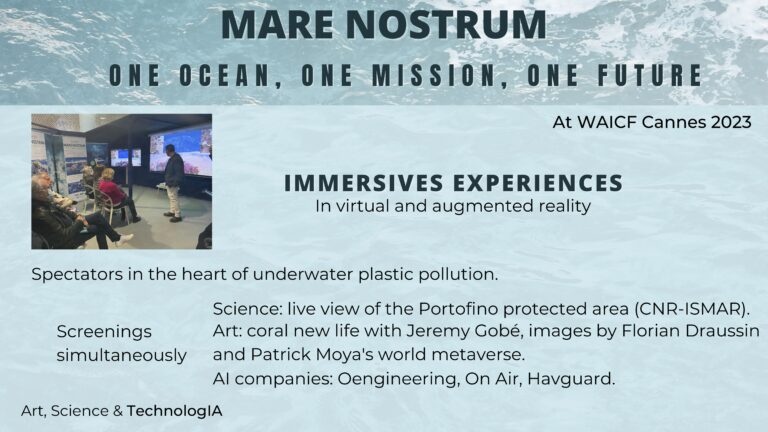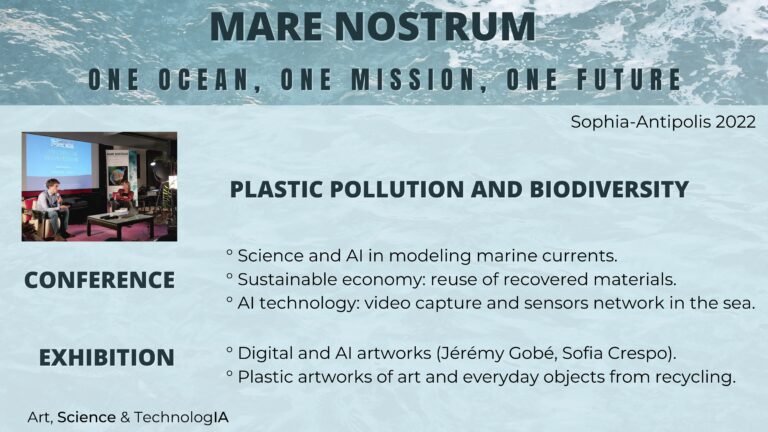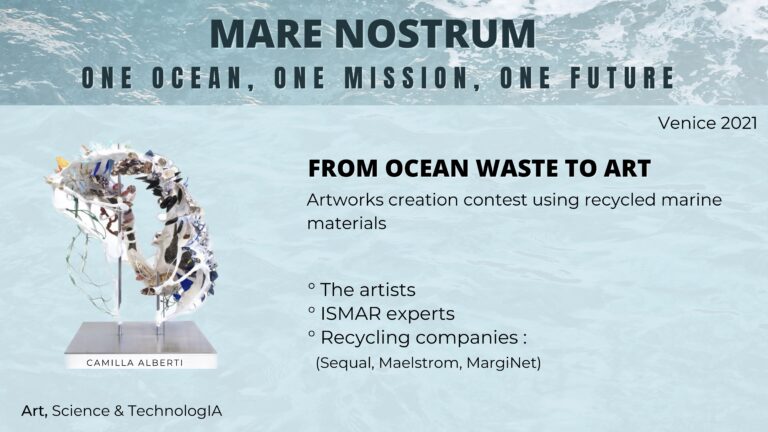2024, Sophia Antipolis
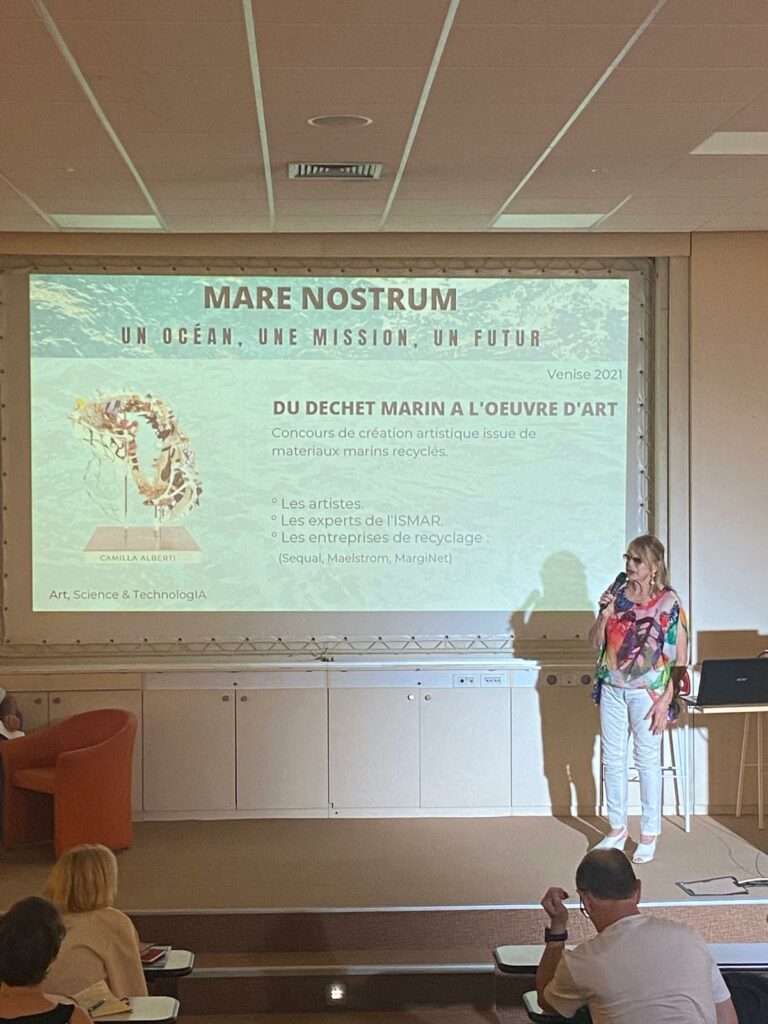

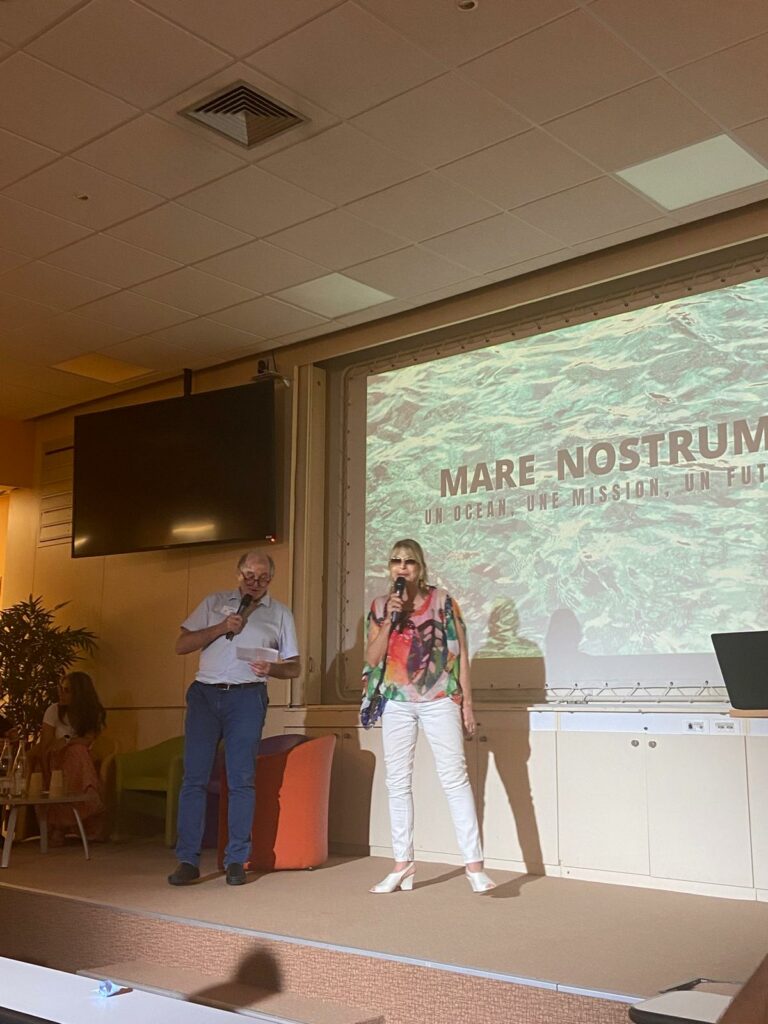
A symposium titled “10 Years to Save Humanity” centered on a unifying, forward-looking project that brings together art, science, and technology to raise awareness about marine plastic pollution and its impact on climate and biodiversity.
Inspired by the visionary spirit of Pierre Laffitte, the event gathers scientists, artists, and innovators around a shared mission: to protect our “common sea” for future generations
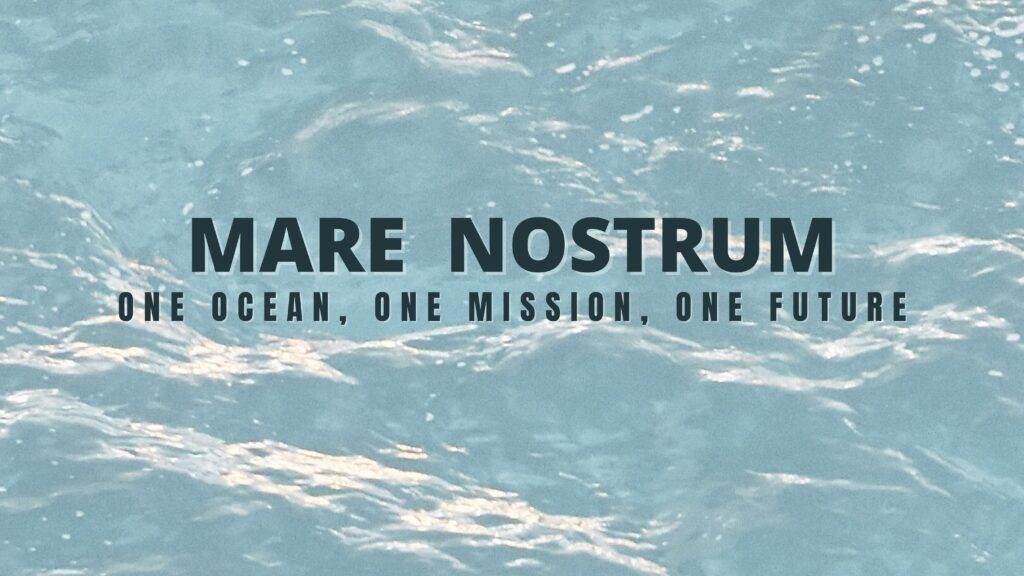
A work-in-progress...
MARE NOSTRUM is an initiative designed to bring together specialist scientists, innovative artists and committed players to address the dangers of marine pollution. The Mediterranean sea holds the sad record of being one of the world’s most polluted seas. Plastic poses a particular threat to marine biodiversity: ingested by marine fauna and flora, it completely contaminates the sea and the entire food chain of living beings. In the particularly fragile ecosystems affected by this issue, protecting the health of the sea means preserving the biodiversity of marine organisms (posidonia, plankton, coral, mammals, fish, birds…).
Initiated and directed by Diana Vicinelli Landi, President of Art-tech and Art & AI expert at the EuropIA Institute, the MARE NOSTRUM project has already taken place in 2021 in Venice, in 2022 in Sophia Antipolis, in 2023 at the WAICF in Cannes, in Villeneuve-Loubet for World Ocean Day and in Monaco. Most recently, the MARE NOSTRUM team was in Genova (Italy) for the Ocean Race, the crewed round-the-world regatta which has, among its goals, one more objective this year: to create and take to the United Nations a first draft of the Declaration of the Rights of the Oceans.
A look back at an initiative which has succeeded in forging a strong link between the various stakeholders: the scientific community, innovative companies in the fields of technology and ecology, artists and the general public.
1) Highlight the scientific research carried out by various marine observatories (CNR in Venice, CNR-ISMAR in Portofino, Laboratoire d’Océanographie in Villefranche-sur-Mer) through a multidisciplinary round table discussion;
2) Demonstrate how marine current modeling can be used to detect, recover and transform polluting debris (fishing nets, plastics, etc.);
3) Raise awareness through art with a competition to create works of art from recycled maritime waste;
4) Present creative workshops to transform marine waste into artistic objects, or recycled utility items (T-Shirts, Glasses) or artists committed to the theme of computer hardware obsolescence.
In February 2023, at the Artificial Intelligence International Festival (WAICF), Diana Vicinelli Landi and her team staged immersive, virtual and augmented reality experiences to make the scientists’ research accessible to the widest possible audience and shareable.
The MARE NOSTRUM project plunged viewers into the heart of the issues surrounding underwater plastic pollution and the need for environmental monitoring, with simultaneous video projections on three screens representing the project’s three interconnected themes: science, art and AI technologies.
Highlighting innovative projects: the industrial metaverse in Norway’s Lofoten Islands, the Antartica project and a first, live underwater video transmission from the Portofino protected area. Thanks to AI, it is now possible to identify anomalies on the seabed and monitor the entire sea, even in places inaccessible to man.
